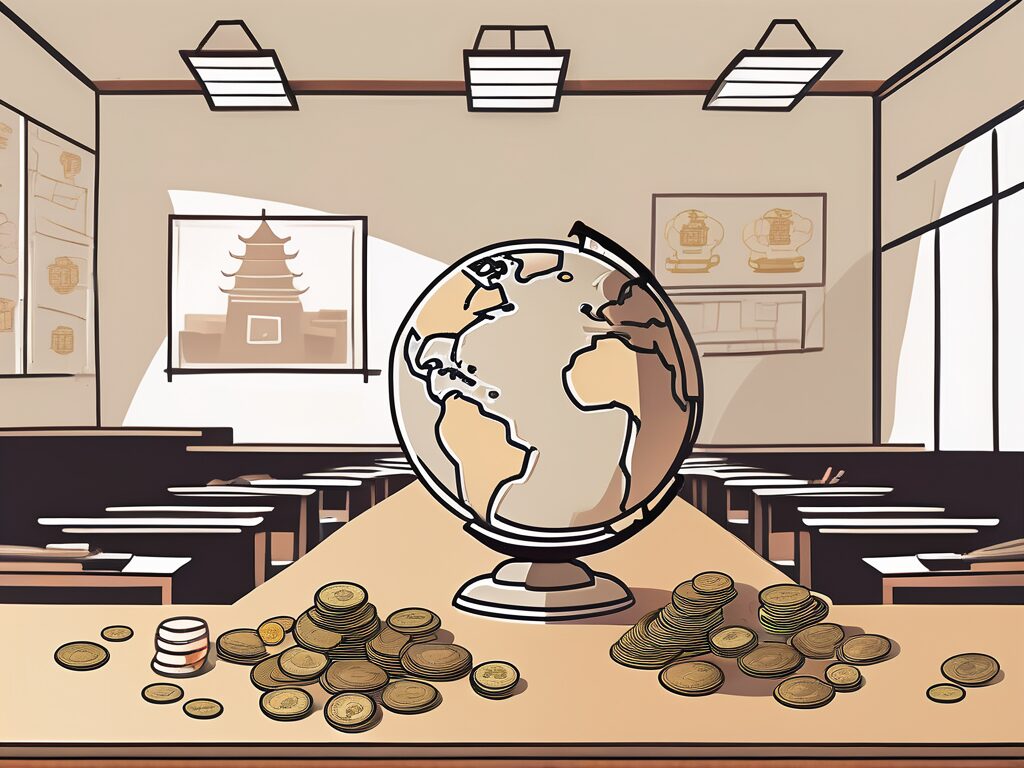Living and working in China as an IPGCE international teacher can be an exhilarating experience. However, managing finances in a foreign country can be a bit of a challenge. This guide provides ten practical money-saving tips to help you make the most of your earnings in China.
Understand Your Salary and Benefits
Before you start saving, it’s crucial to have a clear understanding of your salary and benefits. Your salary is your primary source of income, and understanding it can help you plan your savings effectively.
Most international schools in China offer benefits like housing allowance, flight reimbursement, and health insurance. Make sure you understand these benefits and take full advantage of them. For instance, if your school provides a housing allowance, it can significantly reduce your living expenses.
2. Budget Wisely
Budgeting is a fundamental aspect of saving money. It involves tracking your income and expenses to understand where your money goes. This can help you identify areas where you can cut back and save more.
Start by listing all your monthly expenses, including rent, utilities, groceries, transportation, and entertainment. Then, compare your expenses with your income to see if you’re living within your means. If your expenses exceed your income, you’ll need to make some adjustments to your spending habits.
3. Live Like a Local
Living like a local is one of the best ways to save money in China. This means adopting local habits, eating local food, and using local services.
For instance, eating at local restaurants or street food stalls can be much cheaper than dining at western-style restaurants. Similarly, using public transportation or cycling can be more cost-effective than taking taxis or owning a car.
4. Shop at Local Markets
Shopping at local markets can be a great way to save money. These markets often offer fresh produce, meat, and other goods at lower prices than supermarkets.
Moreover, bargaining is a common practice at these markets, so don’t be shy to negotiate the price. Just remember to be respectful and keep the bargaining process friendly.
5. Use Chinese Apps
China has a vibrant digital ecosystem with apps for almost everything. These apps can help you save money in various ways.
For example, apps like Alipay and WeChat Pay can help you manage your finances and make payments without carrying cash. Similarly, apps like Didi (China’s Uber) can help you find cheaper transportation options, and apps like Meituan and Ele.me can help you find deals on food and other services.
6. Save on Utilities
Utilities can be a significant part of your monthly expenses. However, there are several ways to save on utilities in China.
For instance, you can save on electricity by using energy-efficient appliances and turning off lights and appliances when not in use. Similarly, you can save on water by taking shorter showers and fixing any leaks promptly.
7. Travel Smart
China is a vast country with a lot to explore. However, travelling can be expensive if not planned wisely.
One way to save on travel is by using public transportation like trains and buses, which are usually cheaper than flights. Additionally, travelling during off-peak times can help you get cheaper tickets and avoid crowded tourist spots.
8. Learn Mandarin
Learning Mandarin can be a great asset for saving money in China. It can help you navigate local markets, negotiate prices, and understand local customs and practices.
There are many resources available to learn Mandarin, including language schools, online courses, and language exchange programs. Choose a method that suits your learning style and budget.
9. Stay Healthy
Healthcare can be expensive in China, especially for non-residents. Therefore, staying healthy is not just good for your well-being, but also for your wallet.
Maintain a balanced diet, exercise regularly, and get regular check-ups to prevent health issues. Also, make sure you have adequate health insurance to cover any unexpected medical expenses.
10. Be Financially Literate
Financial literacy involves understanding how money works, including how to earn, manage, invest, and donate money. Being financially literate can help you make informed decisions about your finances and save money in the long run.
There are many resources available to improve your financial literacy, including books, online courses, and financial advisors. Invest some time and effort in improving your financial literacy, and it will pay off in the long run.
In conclusion, saving money as an IPGCE international teacher in China involves understanding your income and expenses, adopting local habits, using local services, and being financially literate. With these tips, you can make your stay in China more financially rewarding and enjoyable.
Elevate Your Teaching Career with IPGCE
While saving money is crucial, investing in your professional development is equally important. The IPGCE program is your gateway to overcoming the barriers of stringent qualifications, limited career progression, professional isolation, and the need for a deeper understanding of global education systems. Join the UK’s #1 Teacher Training Course and experience a transformation in your teaching career with enhanced qualifications, increased promotion rates, higher salary potential, and a global professional network. Don’t let inadequate credentials hold you back. Embrace the opportunity for growth and Join the IPGCE program today to secure your future in the international teaching community.

